Women’s Safety in Ethiopia: 8 Things I Wish I Knew
Is Ethiopia safe for women traveling alone? We asked Alicia Erickson to share eight travel safety tips.
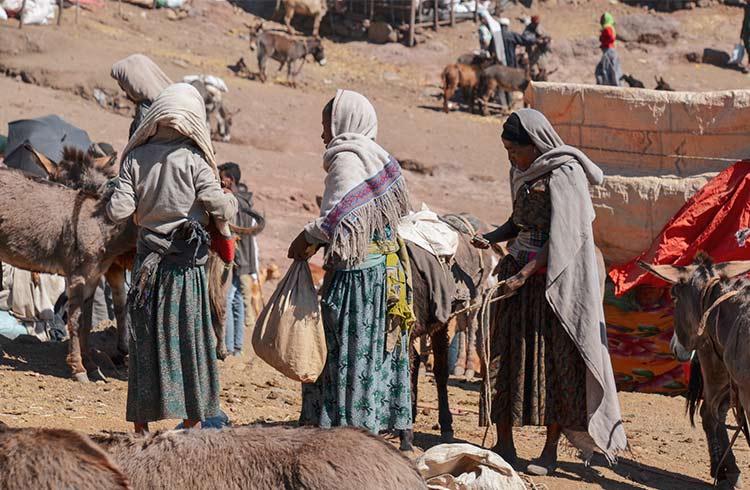 Photo © Alicia Erickson
Photo © Alicia Erickson
On 3 November 2020, fighting broke out in Ethiopia’s northern Tigray region between local Tigray forces and the federal government. Although the conflict was contained to the Tigray region for several months, the fighting gradually spread to bordering regions as Tigray Defense Forces advanced into the Afar and Amhara regions in July 2021.
Tigray, Afar, and Amhara are home to some of the most sought-after tourist destinations in northern Ethiopia, including the rock-hewn churches of Lalibela in Amhara and the dramatic salt flats and fiery volcanoes of the Danakil Depression in Afar. The Simien Mountains – a fantastic national park for trekking and endemic wildlife sightings – require traveling on roads being used by federal troops that border conflict zones and should also be avoided.
On 2 November 2021, the Ethiopian government declared a state of emergency. Under this declaration, the government is able to impose curfews, restrict freedom of movement, and institute censorship, among other actions. Following a ceasefire request by the Tigray Defense Forces (TDF) in late December 2021, the Ethiopian National Defense Force (ENDF) claimed that it would not advance any further into the Tigray region.
While the Ethiopian government proposed to end the state of emergency in late January 2022, the situation remains unstable in northern regions. Military conflict persists in Tigray and sections of Amhara and Afar, with the potential to escalate or spread with little warning. Telecommunications, electricity, and public services are limited in the Tigray region, making travel unpredictable and highly risky for foreign tourists. Many foreign companies evacuated their workers and ethnic violence and threats against Tigrayan citizens continues to be an ongoing issue. Until the situation has a more obvious resolution, travel to and around Ethiopia’s northern regions should be avoided entirely.
Travel in the rest of Ethiopia should be treated cautiously. Ongoing incidences of civil unrest, including protests and strikes, are occurring around Ethiopia. These incidences can cause roadblocks and closures, internet and cell phone network interruptions, and disruptions to transport and business operations.
The capital, Addis Ababa, is relatively stable at the moment (March 2022), as is travel to southern regions of Ethiopia. This includes the popular Omo Valley, a region renowned for its vibrant tribes, as well as Dorze, one of my favorite areas in Ethiopia that is renowned for its dancing and is abundant in green hills and lake views. However, travel to these regions of Ethiopia should still be treated cautiously. Communication with locals living in the intended regions of travel is the best way to stay informed about localized travel and the on-ground situation.
- Gender roles in Ethiopia: What to expect
- What women should and shouldn’t do in Ethiopia
- What to wear in Ethiopia
- What to pack for Ethiopia
- Nightlife safety for women
- Accommodation safety tips
- How to get around Ethiopia safely
- Places to be cautious as a solo woman traveler
1. Gender roles in Ethiopia: what to expect
About a year before my December 2019 trip, Ethiopia elected its first female president, Sahle-Work Zewde. Around the same time, Prime Minister Abiy Ahmed appointed women to half the cabinet positions. While these political landmarks received praise on an international level, such change is still evolving locally. Outside of urban centers, gender roles remain largely traditional throughout the country.
Women are commonly responsible for tending to the house and children. Aside from religious sites and the capital city of Addis Ababa, I rarely saw women outside of the house.
I spent a number of afternoons with women learning how to make injera (bread) and to roast coffee in the Amharic highlands, providing an intimate window into their everyday lives.
Dorze was the exception, where women were openly drinking, dancing, and smoking hookah at the local market. Men were generally much more visible in public, assuming roles such as tourist guides and drivers, operating weaving looms, and selling goods at the market.
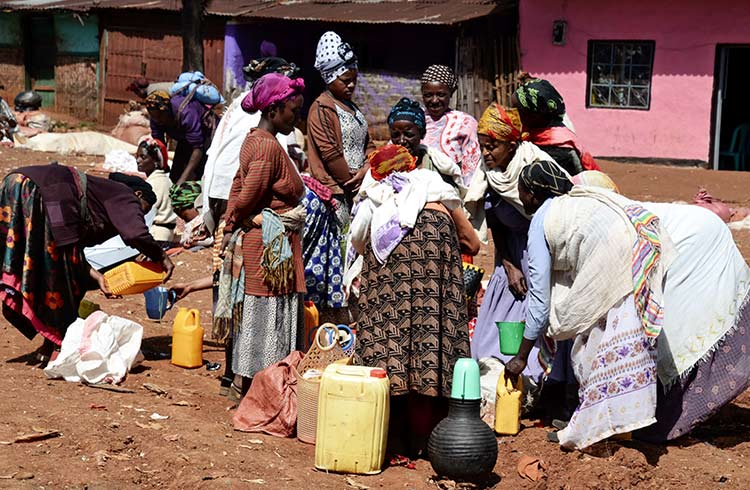
2. Etiquette tips: what women should and shouldn’t do in Ethiopia
There is not necessarily a “do” and “don’t” list, but be aware that tourism in many regions of Ethiopia is new. Male guides will be eager to offer you their services, which can be helpful, but use common sense when negotiating costs and maintaining a professional relationship.
The cultural and geographic knowledge of the guides I met was irreplaceable, but I did encounter an eagerness to know about my personal life. Err on the side of caution if sharing contact details; I had my WhatsApp and social media networks abused by guides and artisans with whom I established a professional working relationship.
There aren’t necessarily places women travelers can’t go, but you should be aware of cultural traditions, such as not eating meat during fasting periods.
The continued internal conflict has added an additional level of uncertainty to travel in Ethiopia. It is important to monitor the on-ground situation closely in the country. Avoid travel in Tigray and northern regions highlighted in red, including parts of Amhara and Afar. While I typically am a huge advocate for solo travel, consider hiring local guides for activities like hiking. Guides can be especially important assets to understand where to go and not go, while navigating potential road closures and communications shutdowns.
Listen to The World Nomads Podcast: Ethiopia
3. What women should wear in Ethiopia
Similar to other countries in East Africa, it is best to dress conservatively in Ethiopia. I opted for long dresses and skirts, loose pants and tops. I always kept a lightweight scarf on hand to cover my head and shoulders when going into religious sites.
The weather can vary drastically between regions. The highlands are extremely hot during the day and very cold after sunset. I piled on all my warm layers at night in the mountains.
Ethiopia is known for its cotton weaving, so you can find an abundance of beautiful hand-woven scarves and blankets across the country, perfect both for warmth and cultural sensitivity.
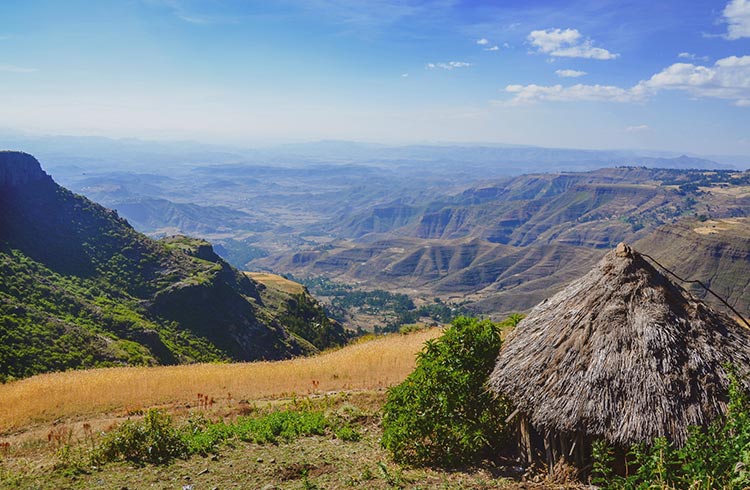
4. What to pack for Ethiopia
Due to the variable climate across regions, loose clothes during daytime and layers for nighttime are important.
A compact down coat, hat, and gloves are recommended.
Sturdy sandals and/or hiking boots are important. Even if you’re not trekking in the Simien Mountains, the highlands regions and the Danakil are rocky, mountainous areas, requiring a good pair of shoes.
Running water is rare in rural regions, meaning facilities to wash hands and take showers are intermittent. I relied on hand sanitizer, hand and face wipes, and dry shampoo.
Toiletries are scare, particularly outside of Addis Ababa, so come prepared with what you will need, including toothpaste and sanitary items.
Also bring ample sunscreen, which is very important for the Danakil Depression and the high altitude areas.
Other items that came in handy included toilet paper, a headlamp, water purification tablets, and a quick drying towel.
5. Nightlife safety for women
Outside of Addis Ababa, there is little nightlife in Ethiopia. You can find live music performances and local bars in areas such as Mekele and Lalibela, which are safe places to go out at night.
In rural areas, join in at music and dance gatherings if they present themselves, but otherwise you’ll find the nights are quiet.
In Addis, it is safe to walk around alone during the day but it’s best to take a taxi at night. Violent crime is rare, though petty crime such as pickpocketing can be an issue.
6. Accommodation safety tips
Accommodation is extremely variable throughout the country. I camped in the Danakil, stayed in guesthouses in small towns, rented an Airbnb in Addis, and stayed in eco-friendly homestay-style homes in Dorze and the Amhara highlands.
There is no fast and hard rule on this except to stay at official establishments when possible. The homestays I encountered provided separate tukuls (round, thatched huts) for each guest, so safety was never a concern. I didn’t experience camping in areas outside the Danakil, though I would not anticipate safety is a concern being in the mountain regions. The biggest concern is bringing enough warm clothes for the cold nights.
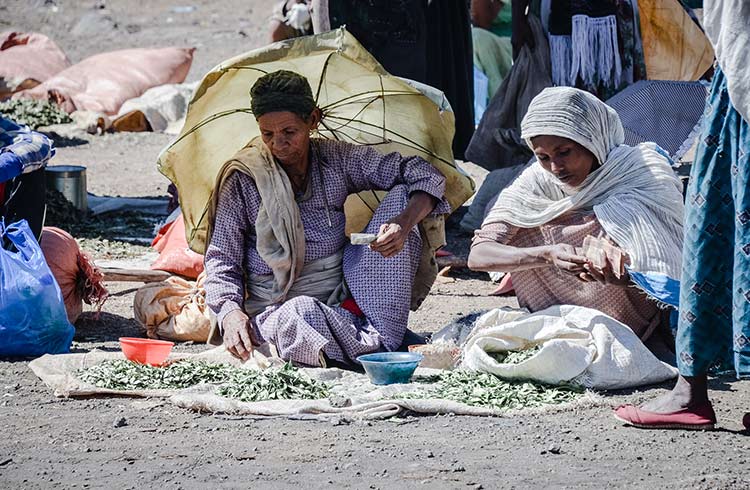
7. Travel logistics for women getting around Ethiopia
Domestic flights have been suspended across the Tigray region. Intermittent and often unpredictable road closures are an issue across Ethiopia. These closures are a result of security reasons as a defense against armed actors, or due to protests or military occupations. They aren’t necessarily limited to the north and closures can take place in Addis and commonly travelled roads throughout the country. These closures may happen with little to no notice and may impact overland travel.
Ethiopia is a large country with a complicated transport system. Local bus schedules are unclear and don’t necessarily include routes to places you want to go to.
Booking private transfers is possible but can get expensive, especially if you are traveling alone. I booked my arrival flight on Ethiopian Airlines, which gave me significant discounts on local flights in a network that covers a number of regions.
The best thing to do is to give yourself time and flexibility in your itinerary.
Buses are possible with a bit of time and asking around. Even when I got stuck on a mountain road due to a truck accident blocking the path, I managed to find buses across the ravine taking passengers in the opposite direction.
8. Places to be cautious as a solo woman traveler
Since my visit in 2019, the underlying political tensions erupted into a full-scale conflict that continues to impact the northern regions of Tigray, Amhara, and Afar. Violent uprisings and conflict occur in these areas, which should be avoided. The border regions should be visited only with extreme caution and vigilant tracking of up-to-date realities on the ground.
There are no places I would not recommend for solo women travelers, though keep in mind that foreign women are likely to attract more attention and stares than men. This holds true both in rural areas, where there is a lack of exposure to tourists, as well as in city centers, where I would frequently be stopped on the streets by men wanting to engage in conversation. I met numerous travelers who had rocks thrown at them while cycling through remote areas of Ethiopia. However, I hiked through rural villages and was often welcomed in for coffee and lunch.
Political tensions can be an issue in Ethiopia. When I was there at the end of 2019, there was a lot of political discussion around the new party in power. The country is largely divided along ethnic divides, which can result in regional instability.
Significant internal displacement was occurring as a result of famine and political conflict, though this would not necessarily impact the everyday traveler in the common areas of tourism.
Border regions are also best avoided, though likely will not be an issue for most travelers unless intending to take an extensive overland, cross-country excursion.
Have you traveled to Ethiopia as a solo woman? Share your experience with us below!
Related articles
Simple and flexible travel insurance
You can buy at home or while traveling, and claim online from anywhere in the world. With 150+ adventure activities covered and 24/7 emergency assistance.
Get a quote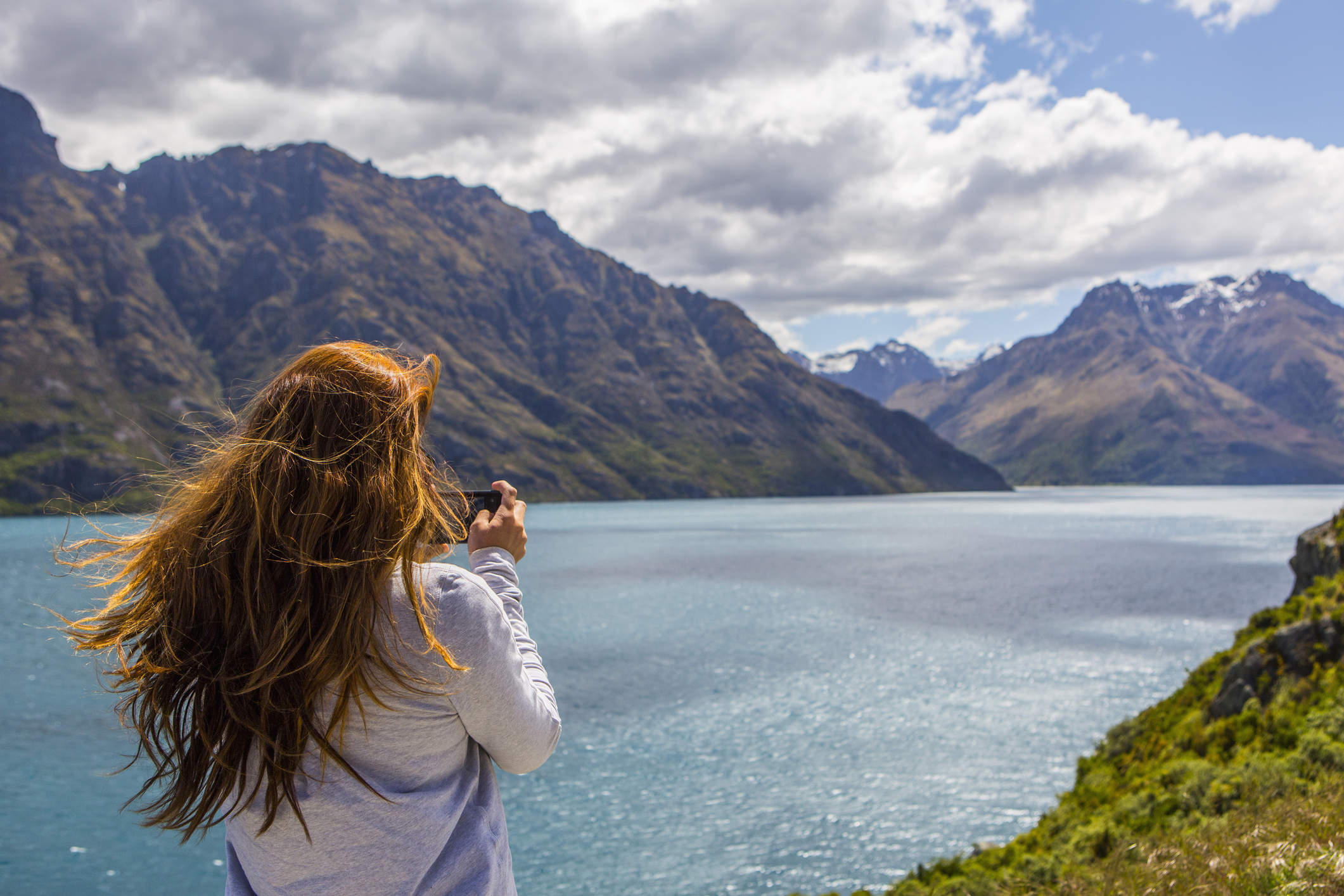

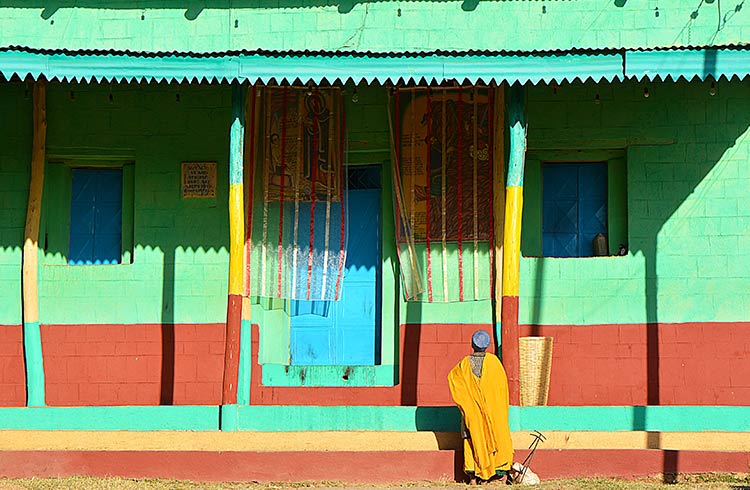
No Comments